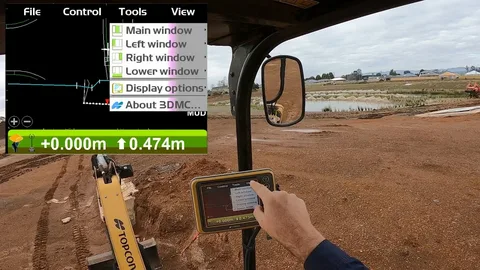The construction industry is undergoing a digital transformation, and one of the most impactful innovations is gps machine control. This technology has significantly improved the speed, precision, and cost-effectiveness of various construction processes, especially in road building. In this article, we will explore how GPS machine control improves efficiency in road building, its benefits, and why it’s becoming an industry standard.
What Is GPS Machine Control?
GPS (Global Positioning System) machine control involves integrating GPS technology with construction machinery such as graders, bulldozers, and excavators. These machines are equipped with sensors and GPS receivers that interact with digital project models to guide operators in real-time. The system ensures that the machines follow the design specifications with minimal manual input.
Increased Accuracy and Precision
One of the most compelling reasons how GPS machine control improves efficiency in road building is the level of precision it offers. Traditional methods rely heavily on stakes, strings, and manual surveying. GPS machine control eliminates much of this guesswork, enabling machines to operate within millimeter accuracy. This means fewer errors, less rework, and better-quality roads.
Faster Project Completion
Speed is crucial in road construction projects, especially those on tight schedules or affecting high-traffic areas. GPS machine control allows for faster grading, excavation, and paving by minimizing delays associated with manual measurement and rechecking. Since the equipment knows exactly where to go and how much material to move, the overall time spent on each task is drastically reduced.
Cost Savings and Reduced Waste
Another key point in understanding how GPS machine control improves efficiency in road building is the reduction in material waste. With precise cuts and fills, contractors use only the materials they need, leading to cost savings. Additionally, fewer mistakes mean fewer delays and less need for costly corrections.
Improved Worker Safety
When machines are guided automatically, the need for ground personnel is reduced, minimizing their exposure to heavy machinery and hazardous environments. Workers spend less time in the construction zone, and surveyors aren’t constantly in harm’s way setting stakes or checking elevations manually.
Real-Time Monitoring and Data Collection
Modern GPS machine control systems offer real-time feedback and data logging. This helps project managers track progress, detect deviations early, and make informed decisions. It also ensures compliance with design parameters and regulatory standards without the need for continuous manual inspection.
Conclusion
It’s clear that how GPS machine control improves efficiency in road building is more than just a trend—it’s a leap forward for the entire construction industry. From increasing accuracy and reducing waste to improving safety and speeding up project completion, this technology offers numerous benefits. As road building continues to evolve, GPS machine control will undoubtedly play an even greater role in shaping the roads of tomorrow.


